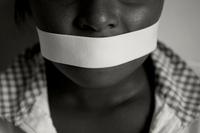
Described as the “flesh trade” and “modern day slavery”, human trafficking has become one of the most lucrative and fastest growing criminal activities in the world. Persons, mostly women and children, are forced into prostitution or domestic work after being tricked or sold, most often by someone they know.
While human trafficking is growing, some have taken responsibility for helping educate those most at risk and open the door for dialogue among countries involved, including South Africa. The International Organization of Migration (IOM) and representatives at the U.S. State Department estimates are that between 40,000 and 100,000 people will be trafficked into and through South Africa in preparation for the 2010 FIFA World Cup. In order to curb this estimate, Tonya Stanfield and the team at Justice A.C.T.S. (Alliance of Christians against Trafficking), a YWAM ministry in Muizenberg, South Africa, have created an educational program called Traffick Proof that is bringing awareness to South African communities and families.
“There hasn’t been one single time we have presented this material where there haven’t been stories of encounters with trafficking,” Tonya says, “As we teach what trafficking looks like, the families begin to see the warning signs and share their stories with us.” Tonya states that as many as 10 percent of those she speaks to have had a close brush with trafficking that was identified through the program.
One community reported high-school-aged girls being recruited as models. Seven of them were chosen and no one has seen them since. Young boys are recruited as football players, sent by their parents to sport camps and not seen again. Recent cases point to organ harvesting where an individual goes to a medical clinic for a minor symptom and is returned to their family deceased and scarred. This is reality for refugees and the poor throughout South Africa. However, since South Africa does not currently have legislation regarding human trafficking, it is hard to get funding and do the necessary large-scale research needed to begin shutting down this web of crime. According to Tonya, kidnapping or abuse are likely charges someone involved with trafficking may be tried for, or hindering accurate reporting of criminal activity associated with human trafficking. These lesser criminal trials can take up to six or seven years.
The Traffick Proof training program is becoming a valuable tool in identifying the scope of trafficking in South Africa. The program is a simple presentation that uses stories and pictures to teach people to identify human trafficking, take protective steps for their families and report suspicious activities. The Justice A.C.T.S. team trains volunteers to take the program into townships and communities identified to be at a high risk for trafficking. There, they put a definition to some of the experiences people have had with human trafficking and empower them to speak up.
With the vast numbers of people expected to be trafficked in relation to the World Cup, Justice A.C.T.S. is focused on training a portion of the YWAM volunteers to identify and prevent trafficking and focus on prostitute/buyer ministry.